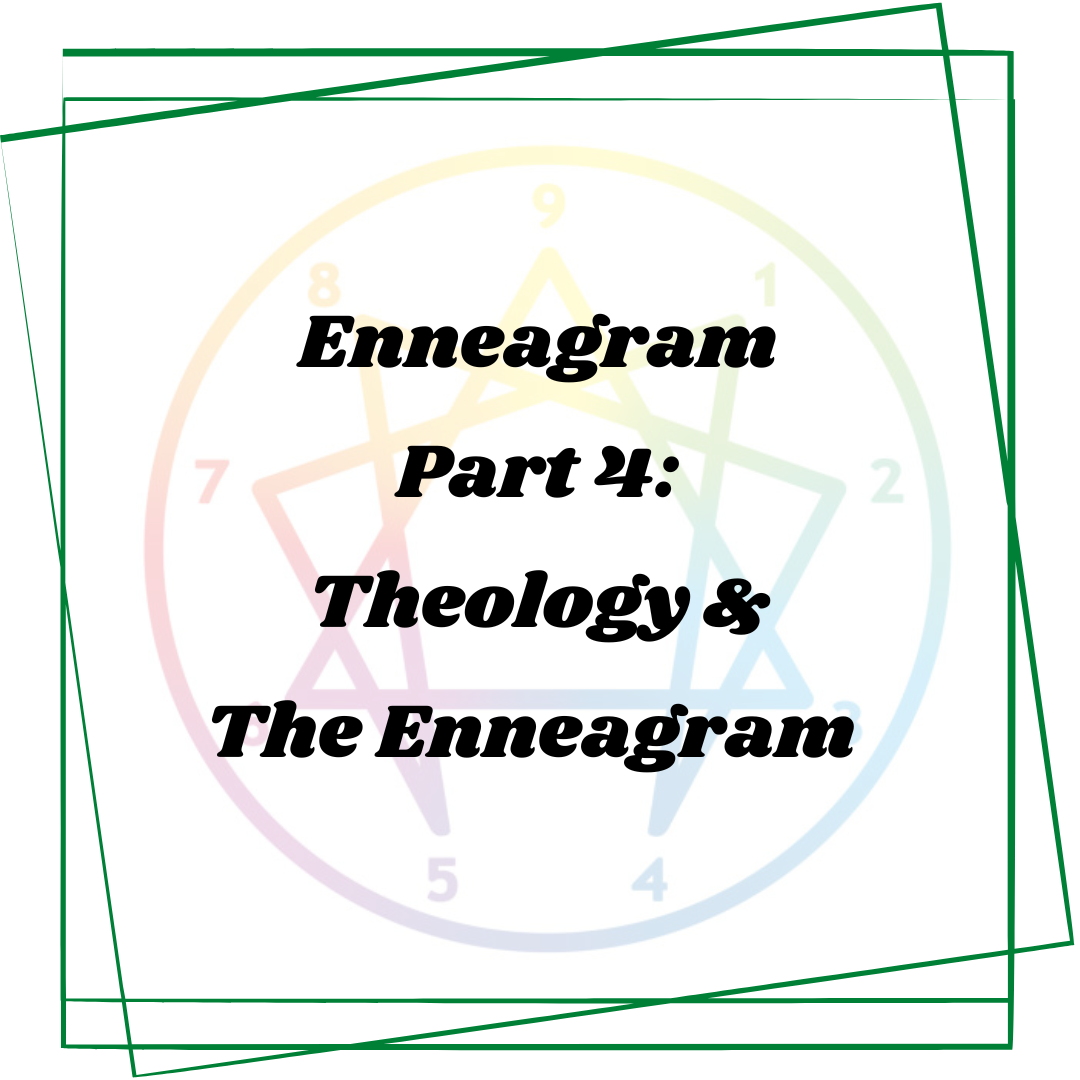
Expounding on Basics
- God’s ability to speak is through prophesy according to biblical precepts and Scripture alone. The Enneagram erases that and teaches that ultimate revelation does not come from God but through practicing the Enneagram, ultimately coming from the self.
- As a Christian we should believe that Scripture cannot change and that God does not change. Yet the Enneagram views Scripture as subservient to the Enneagram and a requirement to draw closer to God.
- Richard Rohr denies the biblical doctrines on man, sin, creation, salvation, and God and teaches a false Christ/Jesus by teaching that Jesus was not the “Universal Christ” because the Universal Christ is bigger than Jesus. In retrospect, creation is Christ. Rohr has also written that his dog Venus was “also Christ for him” in a dedication piece in his book The Universal Christ.
- In ’92, Rohr wrote a book stating it was not of Christian origin but can be used as such. Enneagram can be used to have a deeper relationship with God even though it is not discovered by Christians.
- Panentheism: Rohr asserts that all created things are a manifestation of God. “All” created things includes humans. This asserts that we have a deity in us all and the Enneagram is the path the the “True Self” in which unlocks or manifests that godness within.
- Rohr takes out of context 1 Cor. 3:18 citing only certain parts. He wrote, “the whole world and everything in it that is good, true, and beautiful is at the disposal of Christians: ‘for all things are yours… and you are Christ’s.’”
- The irony is that 1 Cor. 3 is probably the most powerful argument against the use of the Enneagram.
- As there is a “True Self,” there is also a “False Self” that implies we are not sinners, just an incorrect version of us that blocks the “True Self” that is already there. Therefore, there is no need for sanctification or atonement.
- We need to understand that if something is based on the Bible or inspired by the Bible, it does not mean it carries the same authority and power as Scripture.
- Take meditation for example. That is scriptural, with certain prescripts. But when we say that meditation (ie. Automatic Writing) brought about a biblical principle (new or old, or assumed to be biblical) does not mean that principle has the same authority as Scripture.
- Even more importantly, just because someone says that what they teach is inspired by God does not mean it is.
- Cron and Stabile teach that our predictability is what hinders us. (Ie. If we excel in one area, that area is the vice)
- Rohr teaches that this process leads to seeing the truth, not a “membership in the right group or reciting the correct formulas or even practicing the right morality.”
- Sins eventually are viewed as addictions to good things, not evil or what sin really is, which is rebellion against God.
- Until there is a shift into working on the “inner-self” the person is trapped within themselves and so immature.
Theological Terminology:
Panentheism - (heretical) This is the teaching that God is in all things created. This is not found in Scripture anywhere. Any Scriptural references used are taken out of context and eisegetical. Scripturally, God has created everything and so is separate from creation. That is not to say He is not active in creation. Understand, the creation cannot be equal to or greater than the Creator. God is not dependent on creation.
Perennialism - That all religions, philosophies, sciences, etc. (all knowledge? experiences?) have their origin in the same one god or truth. This is more popular within religious and philosophical understandings than sciences. With perennials, it is possible that one religion serves its purpose and is done with in order for the next to take its place for that specific time in human history.
Anthropology - Study of societies and cultures and their development. Teachers of the Enneagram, especially Rohr, have developed their own anthropological understanding. In addition to perennialism, teachers of the Enneagram regard social and cultural rhythms as ever evolving. This evolving detracts the individual from realizing their Devine Self, their “True Self” as it is often cited as, hence the necessity of the Enneagram.
Incarnation - Jesus in the flesh. The Enneagram assumes there are multiple incarnations. Enneagram teachers may not outright teach that but make the assumption to that understanding. For example, the first incarnation was at creation and also at Jesus’ conception. To Rohr, incarnation and salvation are interchangeable terms.
“In Christ” - In addition to how the Enneagram teaches the incarnation, it also a different understanding of what “in Christ” means. First, we are “in Christ” because we are a part of creation (ie. panentheism), not only making us equal with God but also without sin as God is. “In Christ” is understood by Rohr and other Enneagram teachers that humanity was unified with God at creation. The incarnation, according to evangelical christianity, is then denied and is pointless with its redefining by the Enneagram. Second, Rohr wrote in his book Immortal Diamond that the believer should not look “at God” but instead look “out from God,” implying a god-ness within ourselves.
- 2 Cor. 5:16-21 - 16 So from now on we regard no one from a worldly point of view. Though we once regarded Christ in this way, we do so no longer. 17 Therefore, if anyone is in Christ, the new creation has come: The old has gone, the new is here! 18 All this is from God, who reconciled us to himself through Christ and gave us the ministry of reconciliation: 19 that God was reconciling the world to himself in Christ, not counting people’s sins against them. And he has committed to us the message of reconciliation. 20 We are therefore Christ’s ambassadors, as though God were making his appeal through us. We implore you on Christ’s behalf: Be reconciled to God. 21 God made him who had no sin to be sin for us, so that in him we might become the righteousness of God.
Christology - Rohr teaches that Jesus and Christ are two separate entities. He cites these verses in references to this heretical presupposition:
- John 1:1-18
- Colossians 1:15-20
- Ephesians 1:3-14
Sin and Total Depravity - According to the Enneagram, since we are a product of our surroundings and upbringing, we are not liable for our sins. Rohr teaches, as with the basis of the Enneagram, that all things are holy because God is in them. Rohr refers to the Fall as “the problem.
- The sinful nature of humanity is that they do not know their good True Self. Rohr states, “The true and essential work of all religion is to help us recognize and recover the divine image in everything. It is to mirror things correctly, deeply, and fully until all things know who they are.”
- Knowledge of the self is therefore key and the Enneagram is the tool that guides the user to the True Self. Rohr takes out of context 1 John 2:21 saying the knowledge that John mentions is an “implanted knowing” like an inner mirror that connects God “equally to all creatures.”
- Read 1 John 2:20-23
- “True Self” is also interchangeably stated as “authentic self” and “true nature.” Also referred to as an essence or the “Essential Self.”
- Remember, Russ Hudson, a contemporary of Rohr states, “An Enneagram Type isn’t a ‘type’ of person, but a path to God.”
- We need not worry about sin or depravity of humanities fallen state. According to the Enneagram, all we need to do is follow the path of the Enneagram type we are adjacent to.
- The truth is, we are all sinners. Christians included. John was not writing about how we have an “implanted knowing” when he wrote those words. He was combating heretical teachings which was gnostic and docetic. John was and is calling the Church to understand the true nature of Christ, not our selves. We don’t need a special knowledge like gnosticism requires (a big part of the Enneagram). We also know the real-ness of Christ where Jesus did not “seem” to be one thing but is really another like the Docetists asserted (again, another big part of the Enneagram).
- John asks, “Who is the liar?” And answers with “It is whoever denies that Jesus is the Christ.” The theological understanding that is being taught is that Jesus and Christ are two separate entities. Jesus isn’t Christ and Christ isn’t Jesus.
Reconciliation - Reconciliation for the Enneagram is coming to a realization that your authentic self, the True Self, is good. That is what being reconciled to God means because that is, again, a path to God and mirroring that deity within ourselves.
- What the Bible says about reconciliation to God is this:
- We are called to be reconciled to God (2 Cor. 5:20)
- Reconciliation is a part of the atonement, the salvation life (Rom. 5:10)
- God is the one who does the reconciliation (Rom. 5:11; 2 Cor. 5:18; Col. 1:19-20)
- Reconciliation is the declaration that, as believers, we have gone astray, need restored to right relationship with God. Succinctly, our lives are transformed.
Scripture Referenced:
- 1 Corinthians 3(:18)
- 2 Corinthians 5:16-21
- John 1:1-18
- Colossians 1:15-20
- Ephesians 1:3-14
- 1 John 2:20-23
- 2 Corinthians 5:20
- Romans 5:10, 11
- 2 Corinthians 5:18
- Colossians 1:19-20
Works Cited:
- Beth, Christopher. The New Age Trojan Horse. New York: Beyond Publication, 2021.
- Cherry, Rhenn. Enneagram Theology: Is It Christian? Eugene, Oregon: Resource Publications, 2021.
- Lutzer, Erwin W.. Who Are You to Judge?: Learning to Distinguish Between Truths, Half-Truths, and Lies. Chicago, IL: Moody Publishers, 2016.
- Veinot, Don; Veinot, Joy; Montenegro, Marcia.
Richard Rohr and the Enneagram Secret. Wonderlake, IL: MCOI, 2020.

